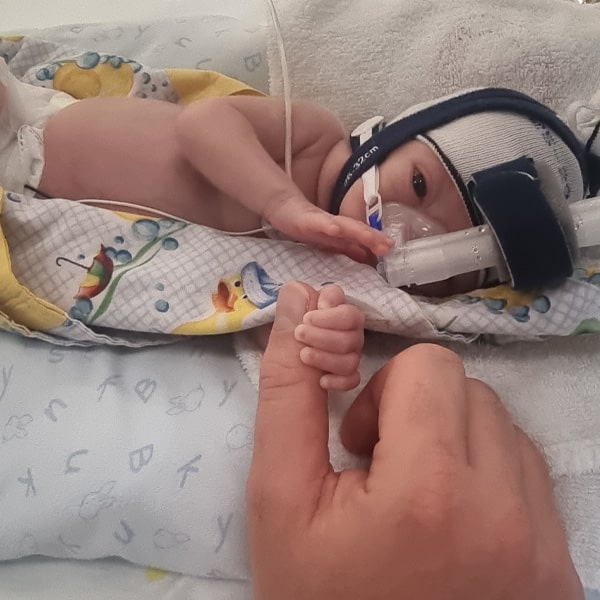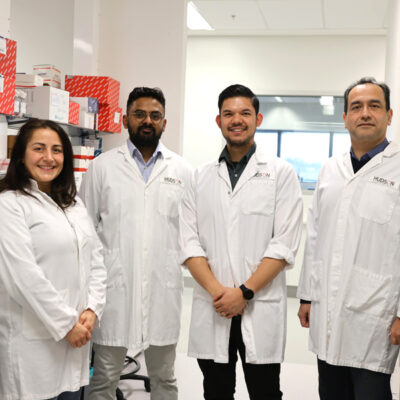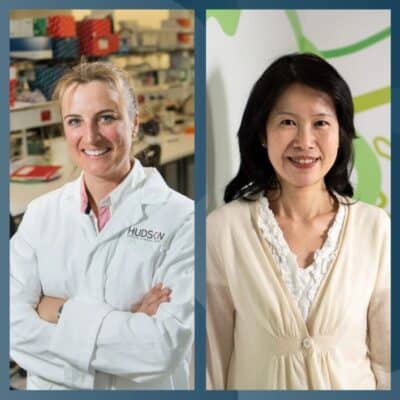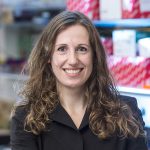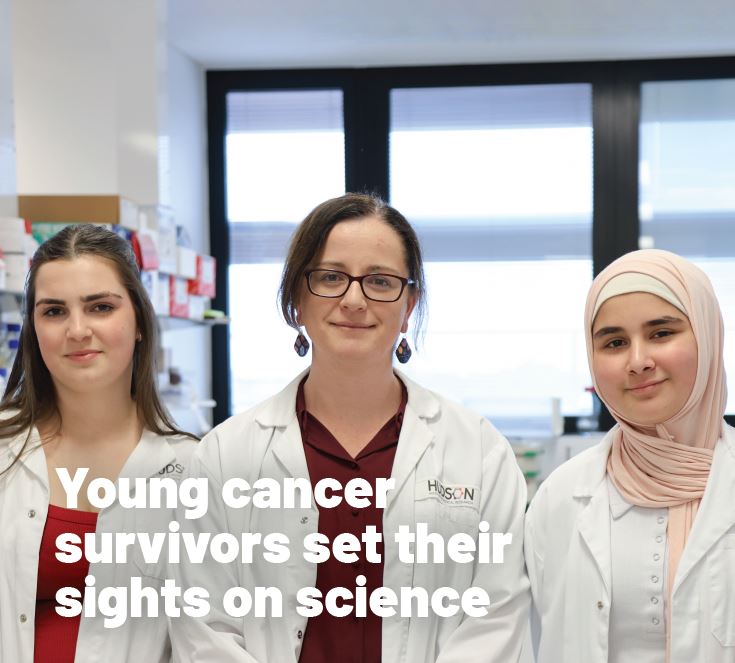Beischer Foundation sticks its ‘NEC’ out
By Rob Clancy, staff writer
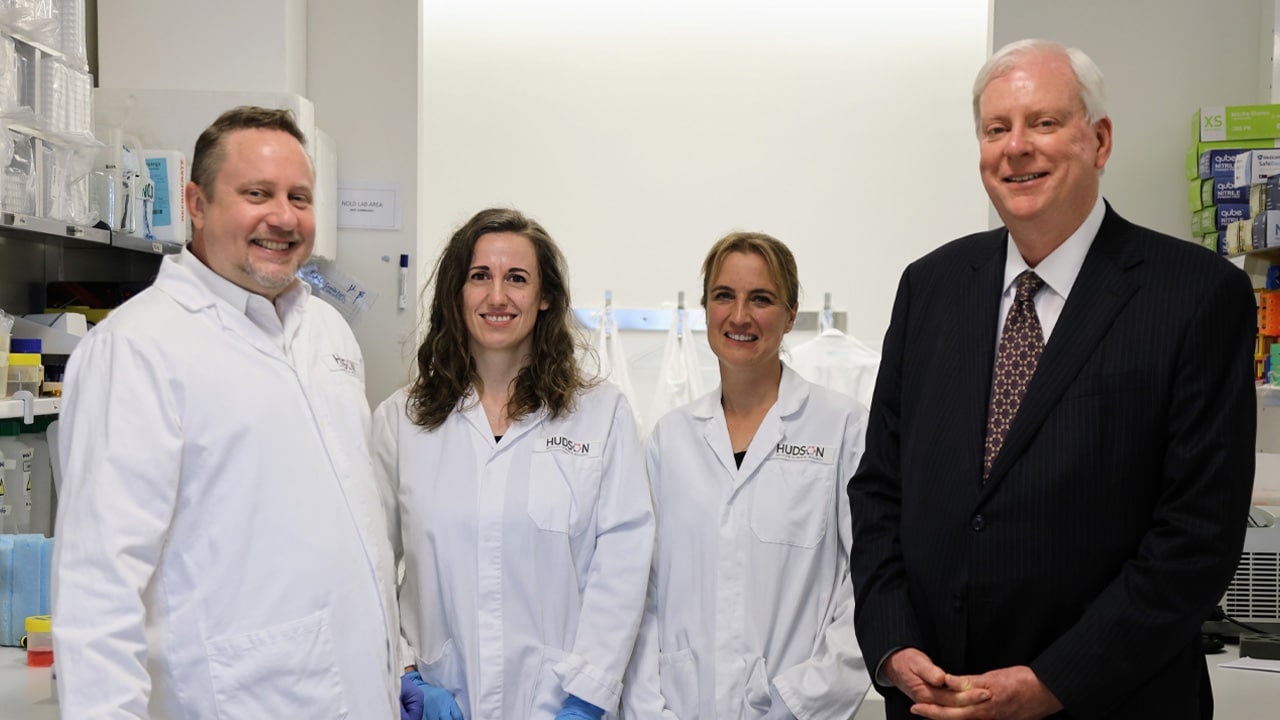
Any new parent will tell you how overwhelming it can feel to suddenly be caring for a fragile new life. Now imagine that this life came into the world before it was ready – the fragility is magnified and with it the number of unknowns and things that can go wrong.
Hudson Institute and Monash University are a global leaders in research investigating the conditions that can affect preterm babies, with Professors Claudia Nold and Marcel Nold at the forefront.
One of their primary areas of research is necrotising enterocolitis (NEC), a disease of the premature gut and the most common cause of death due to gastrointestinal health issues in infants.
NEC triggers massive inflammation, causing parts of the small and/or large intestines to die. Widespread infection and multi-organ failure often ensue. It is a looming spectre that strikes unpredictably in preterm babies.
Sophie and Nathan’s story: turning tragedy into determination
Sophie and Nathan Streeter had never heard of the disease until it struck their baby boy Charlie just eight weeks after his premature birth.
Three days and two surgeries later, Charlie passed away in his parents’ arms.
Through their devastation, this young couple determined to do whatever they could to create positive change; they reached out to Hudson Institute’s resident experts, hoping to create the two things they needed when they encountered NEC.
The first was information – providing the resources parents need in the hours and days after a diagnosis of NEC – to fill the exasperating vacuum that currently exists.
The second was more research – to fill another vacuum, namely the absence of safe and effective treatments for this devastating disease.
Sophie and Nathan were also kind enough to allow Hudson Institute to tell their story as part of the 2023 fundraising appeal. Their story has touched the hearts of everyone who’s watched it.
Collaboration and support: The Beischer Foundation
Elsewhere, at the same time, the Norman Beischer Foundation had a similar aim and the funds to help it happen. Chief Executive Officer Andrew Brookes said the Beischer Foundation was keen to support research into NEC.
“The Foundation wants to stop families, such as the Streeters, and their babies being devastated by being hit by NEC,” Mr Brookes said.
“This disease generally occurs out of the blue and the ability to predict who will get it is limited.
“The Foundation was impressed by the expertise of Professors Claudia Nold and Marcel Nold around NEC and believes that they are ideally positioned to help address this devastating condition,” said Mr Brookes.
The Beischer Foundation donation of $70,000 to NEC research will go a long way towards pursuing new treatments and giving new hope to parents like Sophie and Nathan.
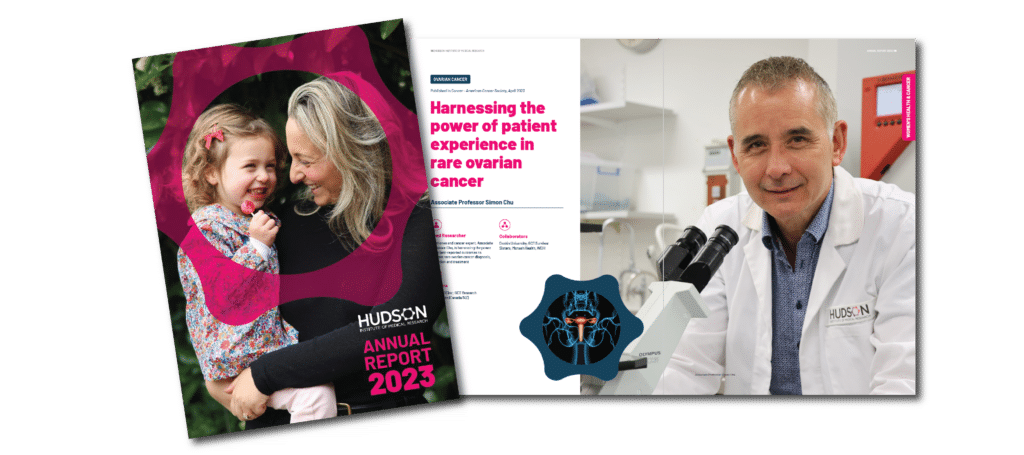
Read more stories like this in the
2023 Annual Report
This research was supported by | Norman Beischer Foundation
In this article
About Hudson Institute
Hudson Institute’ s research programs deliver in three areas of medical need – inflammation, cancer, women’s and newborn health. More
Hudson News
Get the inside view on discoveries and patient stories
“Thank you Hudson Institute researchers. Your work brings such hope to all women with ovarian cancer knowing that potentially women in the future won't have to go through what we have!”

